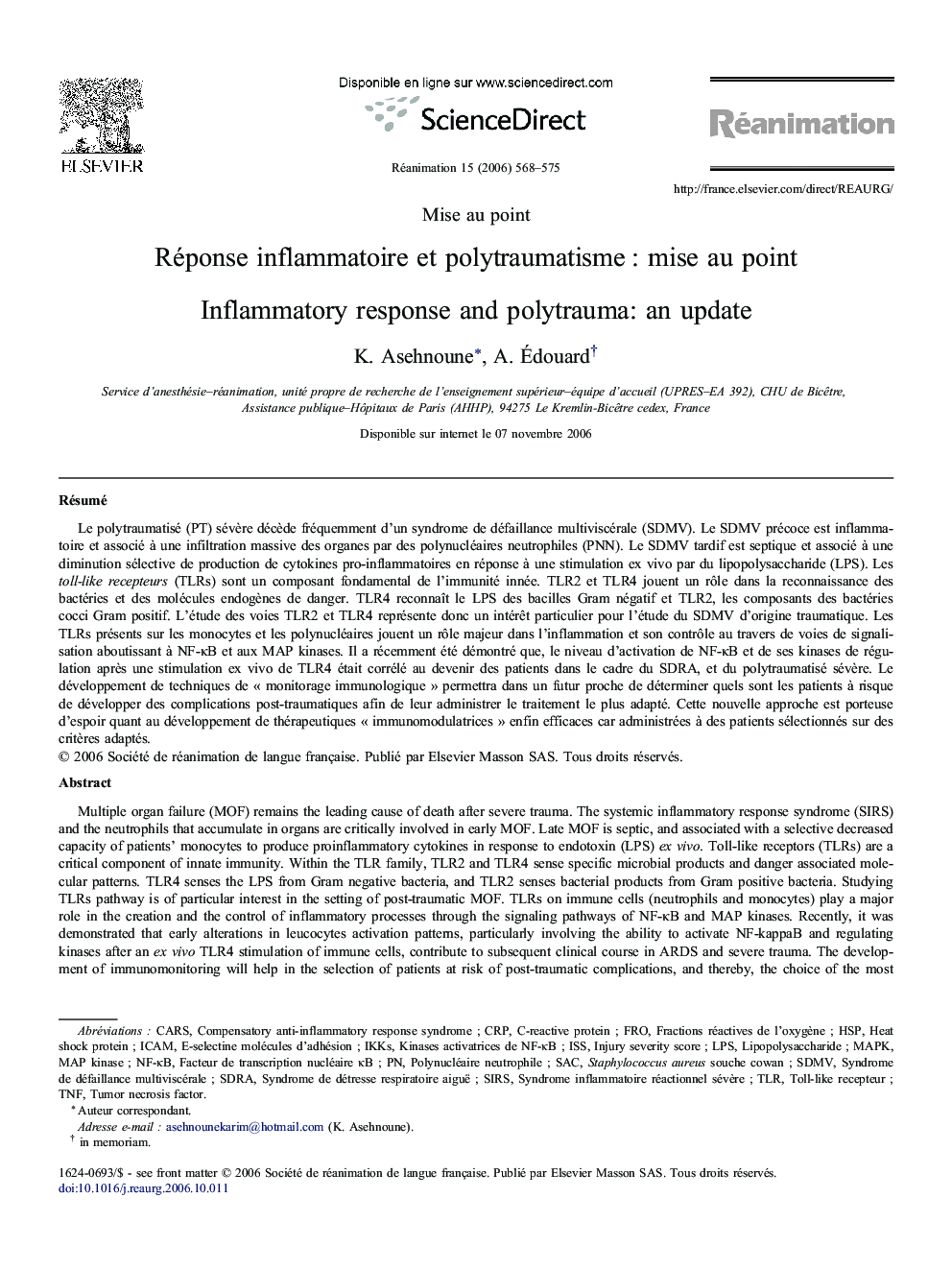| Article ID | Journal | Published Year | Pages | File Type |
|---|---|---|---|---|
| 2613422 | Réanimation | 2006 | 8 Pages |
Abstract
Multiple organ failure (MOF) remains the leading cause of death after severe trauma. The systemic inflammatory response syndrome (SIRS) and the neutrophils that accumulate in organs are critically involved in early MOF. Late MOF is septic, and associated with a selective decreased capacity of patients' monocytes to produce proinflammatory cytokines in response to endotoxin (LPS) ex vivo. Toll-like receptors (TLRs) are a critical component of innate immunity. Within the TLR family, TLR2 and TLR4 sense specific microbial products and danger associated molecular patterns. TLR4 senses the LPS from Gram negative bacteria, and TLR2 senses bacterial products from Gram positive bacteria. Studying TLRs pathway is of particular interest in the setting of post-traumatic MOF. TLRs on immune cells (neutrophils and monocytes) play a major role in the creation and the control of inflammatory processes through the signaling pathways of NF-κB and MAP kinases. Recently, it was demonstrated that early alterations in leucocytes activation patterns, particularly involving the ability to activate NF-kappaB and regulating kinases after an ex vivo TLR4 stimulation of immune cells, contribute to subsequent clinical course in ARDS and severe trauma. The development of immunomonitoring will help in the selection of patients at risk of post-traumatic complications, and thereby, the choice of the most appropriate treatment protocols. Finally, there is reason to believe that future studies may demonstrate a beneficial role for immunomodulatory therapies in carefull defined groups of patients.
Related Topics
Health Sciences
Medicine and Dentistry
Emergency Medicine
Authors
K. Asehnoune, A. Ãdouard,
